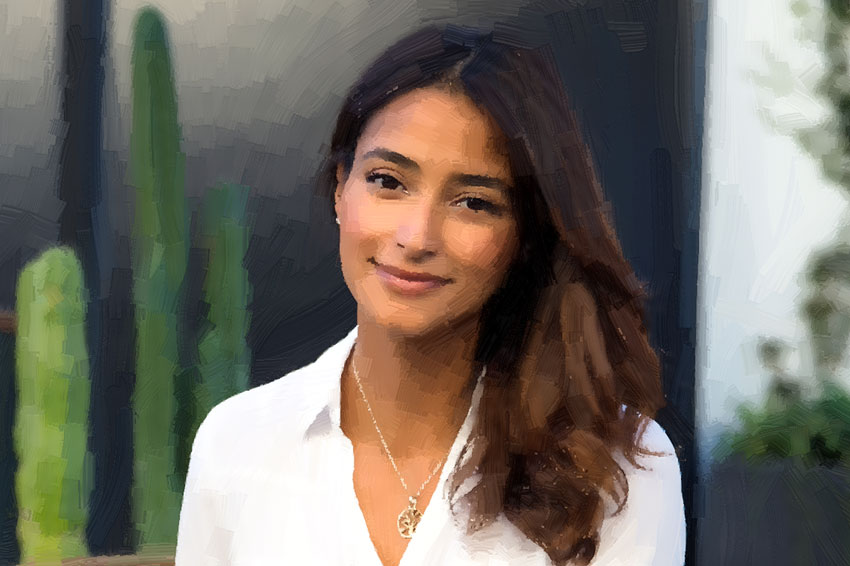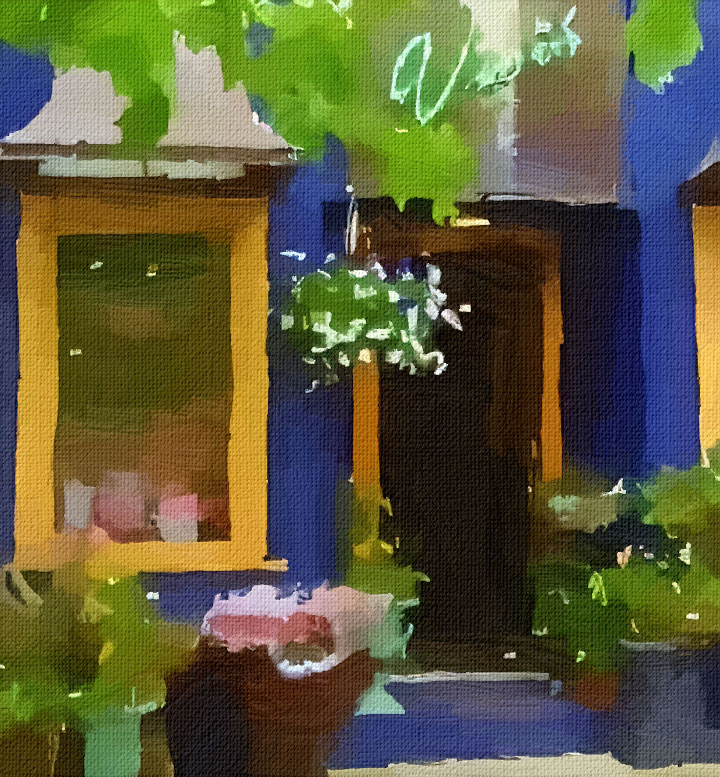Improve Your Painting Skills with AKVIS ArtWork
In this article the author Dale McGee, BFA tells us how to improve painting skills using AKVIS ArtWork. It could be helpful to young artists and art teachers.
I have a degree in Fine Arts with an art education major and although I am not teaching now, ideas are buzzing through my head on how this program could be used in a class room. Students at the high school level have trouble understanding the purpose and beauty of abstraction because of lack of visual experience.
One of the most common problems that can sabotage a painting is when an artist concentrates too much on small details, such as one tree in a landscape. When this happens it is easy to loose track of the whole picture and how everything fits together like a puzzle. Those pieces include such elements as the use of pattern, lines and shapes to create a feeling of unity in the work.
Preplanning a painting is essential in order to achieve the desired effects. Preplanning consists of thinking about the initial concept or idea, the style in which to paint, realism to abstraction, the mood one wants to portray, for example, soft and gentle with analogous tones of blue and green, or dynamic presentations using complimentary colors.
Using AKVIS ArtWork could provide students with an immediate understanding of how realism can be reduced to the beauty and simplicity of line, form and color. Once done, it would allow them to concentrate on the principals of art in their work such as rhythm, repetition, color, composition and tone.
The mere process of adjusting the visual effects can lead to further ideas and greater understanding of what and how one wants to portray of the image. With the simplification tool it is so easy to move away from detail in order to see the possibilities for blocks of color, what we would like to change or keep and which areas are best for a focal point. There is even a fantastic tool for changing the light direction. The brush work tool is wonderful to experiment with the length and or intensity of brush strokes one might choose to work with. In short, AKVIS ArtWork is absolutely ideal for use in planning a painting.
This approach would be especially satisfying for students who lack the ability but get caught up in trying to reproduce realism. It would also be ideal to teach perspective as students could work in more detail in the foreground and then using AKVIS understand how distance becomes less detailed further away. I can just picture a class room filled with budding artists, using this program to play with ideas for approaching the still life in front of them using the brightness direction, brush stroke and intensity. Just "playing" with the image would provide ideas on how to approach the still life in their work. The possibilities for using AKVIS are endless and very inspiring.
Example #1: Portrait
With the help of AKVIS I have been able to simplify the detail and using the brush stoke and intensity tools I have adjusted the pictures to show less detail and increased the area of light, mid and dark tones. I can even see colors in the shadows. In accomplishing this I have given myself a visual guide to starting these portraits and concentrating on form and color rather then getting caught up in detail. It is rather like an artist’s trick of squinting one eye’s to block out detail. Instead of doing that, I have the actual simplified image to refer to. I now feel more confident and prepared to create these portraits and am very enthusiastic about starting them.


(click to open large version in a new window)
Example #2: Postcard
This delightful cafe inspired me to plan a painting. I didn't want to render the painting as a copy of the photograph. Rather, I wanted to capture the essence and charm of this little structure that caught my imagination. Using the AKVIS program I was able to play with different compositions. I chose this frame to plan my painting because I want to emphasis the vibrant blue shapes. The orange hue of the flowers is a compliment to the blue, meaning that when they sit beside each other the orange/yellow will make the blue more vibrant and visa versa. I don't want to paint the flowers and foliage in microscopic detail as I want the emphasis to be on the color and shape so with AKVIS I was able to reduce them to the splash of color I want. This color is also reflected in the door and window frames so it all ties in very nicely. The greenery at the top and the white hanging flowers add a contrast and accent to the whole composition. With the help of AKVIS, I have been able to find a focus for my painting and best of all, it took so little time to do. Working as I have with such a picture would provide an art teacher with a wonderful animated lesson in color and composition.

I came by this amazing program quite by accident while searching different web sites for artistic aids. I have tried many different programs but as soon as I experimented with the free trial version of AKVIS ArtWork I knew that was the one for me. I was most impressed by control I had in using the tools and with its uncomplicated ease of use, especially as I am more comfortable with brush in hand as opposed to figuring out more complicated and time consuming programs. Words fail to express how delighted I am to have found a program that will help me with my creative road block. Thank you again AKVIS
